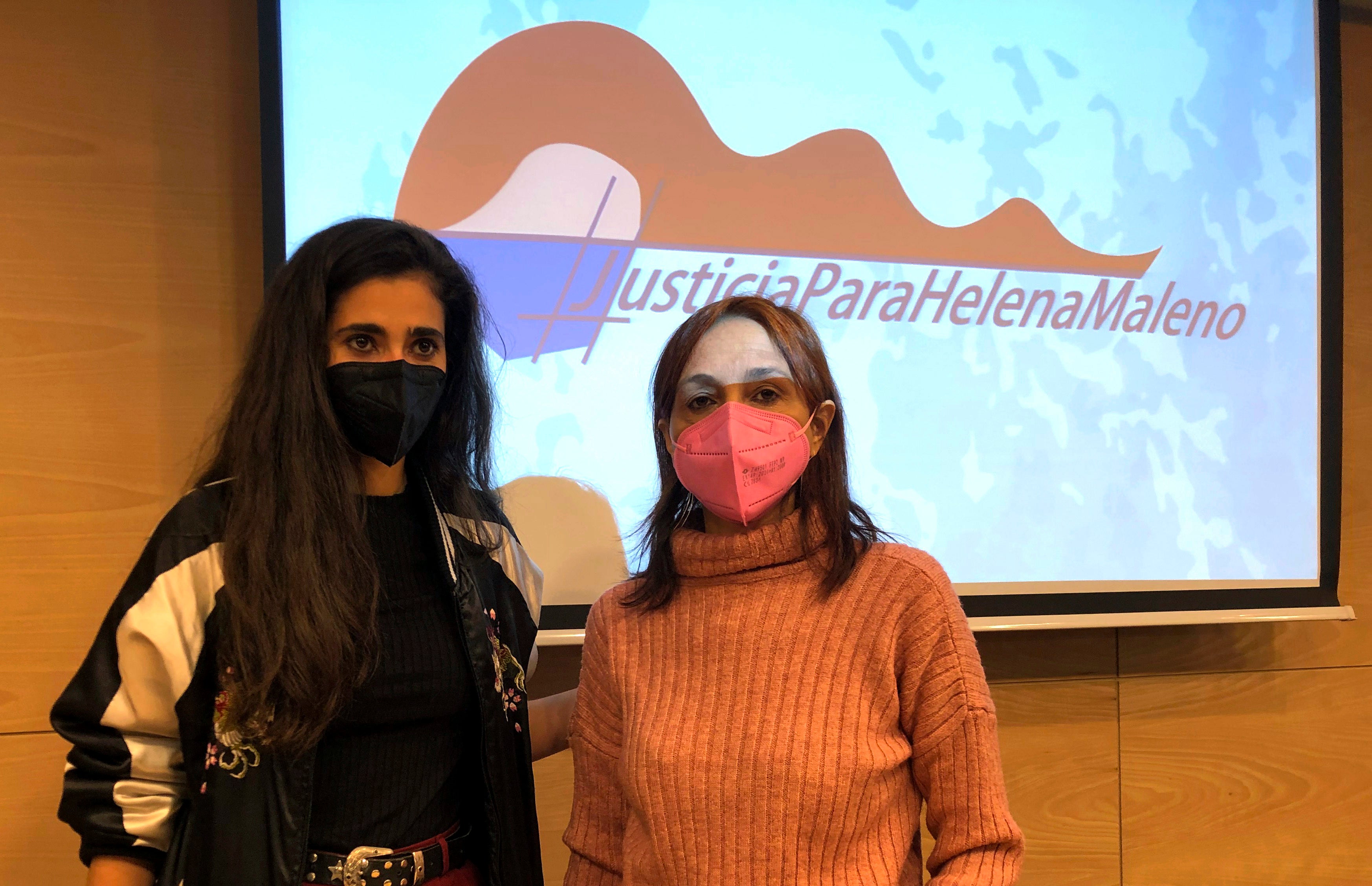Migration activist says Spain, Morocco trying to silence her
A renowned Spanish activist for migrants’ rights says she has been barred from returning to Morocco, where she has lived and worked for two decades, in what she says is the latest attempt by Moroccan and Spanish authorities to silence her

A renowned Spanish activist for migrants’ rights accused authorities in Morocco and Spain on Monday of trying to silence her by barring her from returning to the northern African country where she has worked for two decades.
Helena Maleno, the founder of the Walking Borders group that has been alerting rescuers when boats carrying African migrants fall into distress in the Mediterranean Sea, said she was denied entry to Morocco on Jan. 23 without further explanation.
She also said her 14-year-old daughter was left in Tangier the northern Moroccan city where the activist relocated in the early 2000s, and that it took them more than a month to reunite in Spain.
The activist said she had waited until now to reveal the January events to protect her family and allow time for authorities to find a solution.
Maleno accused the government in Rabat of launching an administrative offensive against her following a failure of a judicial probe for alleged involvement in human trafficking two years ago.
She also said members of Spain's police who brought charges against her nearly a decade ago were still trying via the country's Interior Ministry to end her activism.
“They want us silenced. They don’t want us to explain the murky business that is ongoing at the border and that allows people to die," Maleno told The Associated Press in Madrid.
In a brief written response, Spain’s Interior Ministry denied any involvement in Maleno’s return to Spain.
Boubker Sabik, a spokesman with the Moroccan police directorate, said the Justice Ministry and police in Tangier are gathering more information about the activist’s case before they can reveal details to the media.
Mustapha Ramid, the Moroccan minister in charge of Human Rights, denied any knowledge of Maleno’s situation.
The activist said harassment didn’t stop after a court in Tangier dropped her case in 2019, following a two-year judicial probe based on reports by Spain’s National Police that accused Maleno of links with human trafficking gangs.
The Spanish police report had been rejected in 2012 by prosecutors at Spain’s National Court.
The family has been subjected to police roundups, tapped phones, home searches and overall close scrutiny, Maleno said. Despite numerous appeals to Moroccan authorities, she had also been denied a new residence permit after the renewal was rejected in 2018, when the judicial probe against her was still open.
Since then, the activist said she had been coming in and out of the country every three months until, on Jan. 23, Moroccan police agents waited for her at the Tangier airport. She said the airline crew forced her to remain on the plane that took her to Barcelona, where Spanish police awaited her and processed a Moroccan deportation order.
Maleno said neither Morocco nor Spain had explained the reasons for her entry rejection. She thanked Spain’s Ministry of Foreign Affairs for facilitating her daughter’s trip to Spain.
“One part of the government has shown us their goodwill, but I believe there are still uncontrolled elements within the Interior Ministry that often work independently from the rest of the government,” Maleno said at a press conference.
Other activists have presented the prosecution of the 50-year-old activist as part of a string of judicial and administrative hurdles in several European countries against people defending the rights of migrants.
María San Martín from the Ireland-based Front Line Campaigners’ group that is providing Maleno with legal and security support says Maleno’s case “is paradigmatic.”
“She is one of the most visible activists in the border between Morocco and Spain,” San Martín said. “Authorities have recognized that her work is legitimate but they have proved incapable of protecting her.”
Thousands of migrants from Africa trying to reach Europe arrive each year in flimsy boats on Spanish shores — and hundreds die attempting the treacherous journey.
Over 6,000 people arrived by sea in Spain in the first three months of this year, according to the latest Interior Ministry data. In 2020, more than half of the nearly 42,000 arrivals to Spain were to the Canary Islands archipelago in the Atlantic Ocean.
___
Tarik El Barakah reported from Rabat, Morocco.
___
Follow AP’s global migration coverage at https://apnews.com/hub/migration